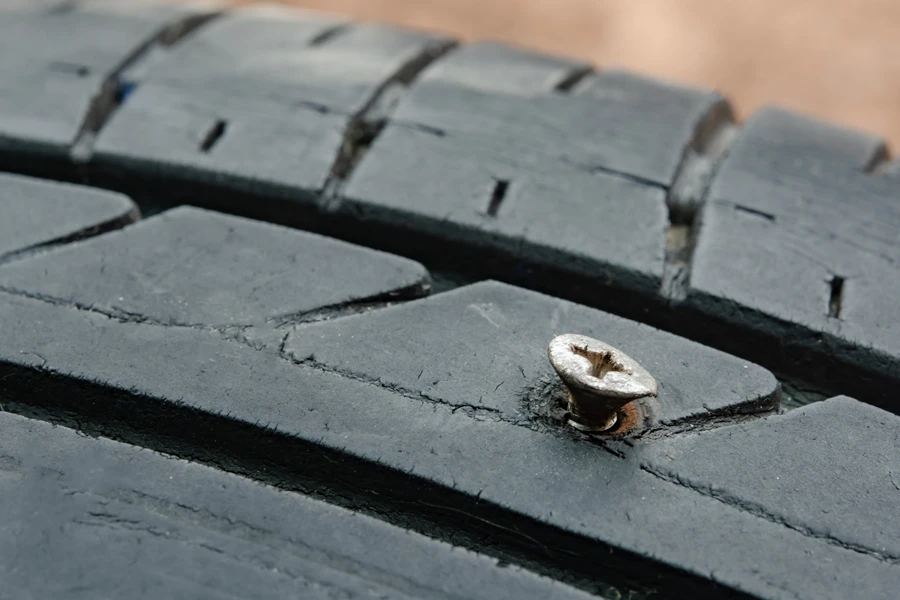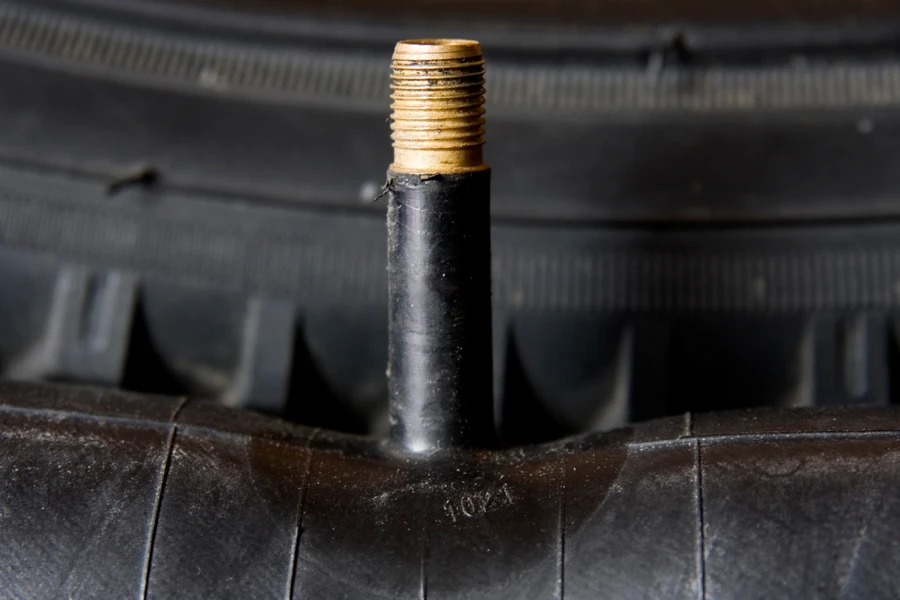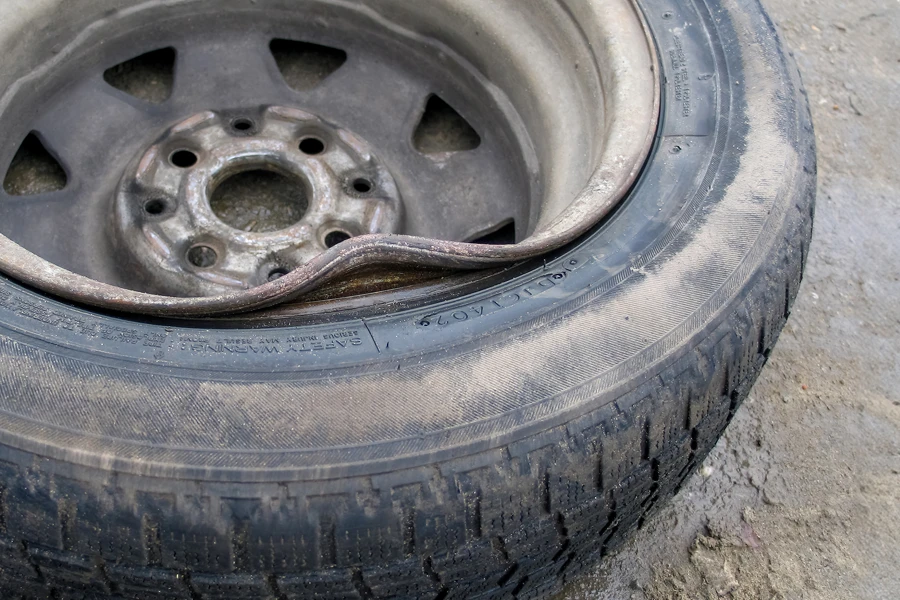Slow Tire Leak Causes & What to Do
Properly inflated tires help keep you in control, whether you’re driving to work or somewhere a bit farther away. While the tires on your vehicle will naturally lose 1 PSI (pounds per square inch) per month, a slow tire leak can add up to considerably more pressure loss over time. A tire leaking air can cause uneven tread wear, misalignments, safety issues, and a loss in fuel or range efficiency — especially if it goes unnoticed for a while. Here’s how to spot slow leaks on new and older tires, and what to do if you find one in one of your tires.
Identifying the Culprits: Common Causes of Slow Tire Leaks
Is your TPMS dashboard indicator constantly lighting up? Do you notice one or more of your tires looking a bit underinflated more and more often? You could have a slow tire leak. Here are some of the more common causes:

Tiny punctures
Nails, screws, rocks, and small road debris that puncture your tire but don’t cause a flat can still allow small amounts of air to escape.

Valve stem damage
The valve stem is used to add air to your tires. When that stem becomes brittle from the elements or damaged by rocks or curbs, it can develop a slow leak. When any of your valve stems develop a leak, get to Les Schwab for a replacement.

Tire bead seat
Where the rubber of your tire meets the wheel is called the bead seat. This area can develop slow leaks if your wheels become slightly bent or damaged, or if a rock or other item gets lodged between the tire and wheel.

Sidewall damage
Hot and cold weather can damage tires over time, causing cracks and chips in the sidewall. While a damaged sidewall cannot be repaired and will eventually lead to tire failure, it can initially result in a slow air leak.
How to Identify a Slow Tire Leak
A slow leak isn’t always noticeable. Here are some ways to identify and pinpoint a slow leak:
Don’t ignore your TPMS dashboard light.
If you’re being urged to add air to a specific tire, you may have an air leak.
Visually inspect your tires every month.
Look for signs of damage and listen closely for escaping air. If you suspect you have a slow leak, remove the tire and wheel assembly. Then, spray the sidewall, tread, valve stem, and contact bead with a mixture of water and soap. If any bubbles appear, you may have found a leak.
Check your air pressure often.
Follow these instructions to add air to your tires. Or stop by Les Schwab. Our professionals will check your air pressure, add air when needed, and even check for slow leaks.
Effective Tire Leak Repair Methods
Once you’ve found a slow leak, repairs are sometimes possible if it is in the main part of the tread. Repairing issues with the valve stem or tire bead can be much more complicated and, in some cases, dangerous without the right tools.
While you can fix some slow leaks yourself with do-it-yourself patch kits, the professionals at Les Schwab are ready to help. Our teams have been repairing flats for decades using a multi-step process to ensure proper repair. That repair could even be free if you purchased the tires from Les Schwab.
Preventing Future Tire Leaks
Want to prevent slow air leaks? Try these three maintenance tips.
Rotate your tires every 5,000 miles.
Book your appointment at Les Schwab and we’ll rotate your tires by moving them to different wheel positions on the vehicle. That gives tires on drive wheels a rest, evens out wear, helps avoid slow leaks, and adds life to your tires.
Get your wheels balanced.
Every tire and wheel has a heavy spot in it. Those small differences can cause vibrations and uneven tire wear, which can lead to slow leaks when the bead seat loses its connection.
Get your alignment checked once a year.
When you bump up against a parking lot barrier, hit a pothole, or hit the curb, something has to give. It’s often your alignment. The smallest misalignment can reduce fuel efficiency and tire wear

Recognizing Unrepairable Tires
For your safety, and due to tire limitations, all repairs are limited to the tread area. If you find a slow leak on the shoulder or sidewall of any tire, get that tire replaced instead of trying to repair it.
Keeping Your Tires Leak-Free and Your Drives Smooth
It is important for your safety and budget to catch slow tire air leaks before they can damage your tires or cause a tire failure. Regularly inspect your tires and watch your TPMS dash indicator for air leaks, or stop by Les Schwab. Our professionals will give your tires a free visual inspection, check the air pressure, add air when needed, and show you all of your options, including repairs and replacement.

